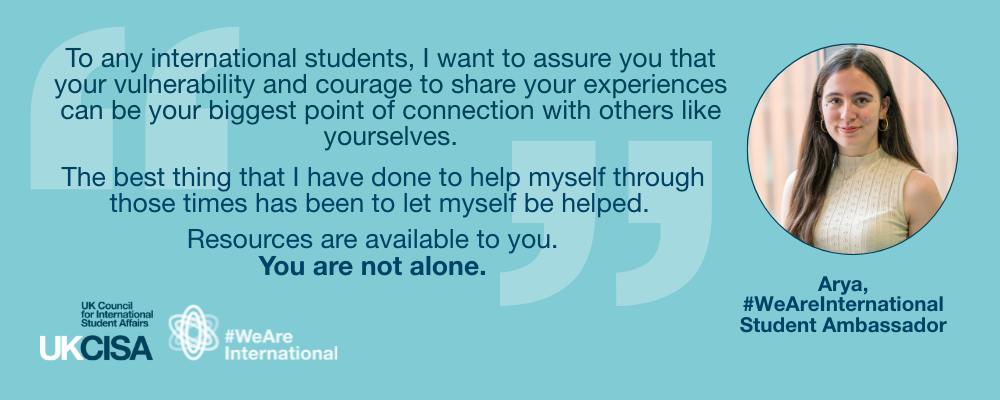Guidance for school counsellors: join our webinar on 26 February. Find out more.
Mental health support in the UK
Find out where to get support if you’re concerned about your mental health.
Last updated on 28 January, 2026

Introduction
Last updated 20 December, 2024
Moving to a new country, learning different methods of studying and forming new friendship groups can be a very exciting time when you study in the UK. But it can also be very scary if you’re adapting to a new climate, potentially speaking in a different language and feel far from your friends and family.
Starting a new university, school or college is a big change and all students, whether from the UK or elsewhere, may feel overwhelmed at some point.
You may experience feeling isolated, distressed, anxious or lonely. International students can have many concerns, including:
- Language barriers
- Not understanding cultural references
- Financial worries
- Exam stress
- Worrying about proving yourself to your parents
There are small steps you can take; making sure you don’t isolate yourself by going outside to a public place can help, or talking about how you’re feeling with a tutor or a friend from home.
Note: UKCISA doesn't provide mental health advice on our advice line.
Attitudes to mental health in the UK
Last updated 15 November, 2024
Students often say that they don’t want to draw attention to any issues because in their home country they don’t recognise it as an illness or it is frowned upon.
‘[in China] we only go to help if we get hurt physically, but not mentally.’
Whereas in the UK, organisations are increasingly creating campaigns to encourage ‘time to talk’. This may be different from perceptions of mental health in your home country.
When you arrive in the UK you may experience 'culture shock' as you adjust to a new culture. This is normal, usually temporary and to be expected. Read our advice about coping with culture shock. However, if you feel like you've been experiencing these feelings for a period of time you may benefit from some additional help so please contact your institution or Students’ Union for support.

Read Arya's experiences managing her mental health as an international student in the UK.
Where to get help
Last updated 20 December, 2024
There are lots of places that can help you and provide support so please don’t suffer in silence. The NHS also provides useful overview of where and when to seek help. Click to read more information on the items below:
Worried about a friend?
Last updated 15 November, 2024
If you’re looking at this page on behalf of a friend do pass on the website address of this page. Organisations like Student Minds offer support about how to help a friend or family member. There is some useful advice at studentminds.org.uk/supportforafriend
Find out more about how to manage your mental health as an international student directly from our #WeAreInternational Student Ambassadors:
Related articles
-
Healthcare
This section provides advice on looking after yourself, as well as practical information on how to obtain medical treatment.
-
Facing culture shock
Cultural shock is common for international students. Be prepared for what it may mean and how you can navigate it.
-
Students' unions in the UK
Most institutions have a Students’ Union; an independent student-led organisation to represent the interests of their students. Find out how they can provide support.
Sign up to our free email newsletter
Stay in touch with UKCISA and get all of our updates before anyone else.


